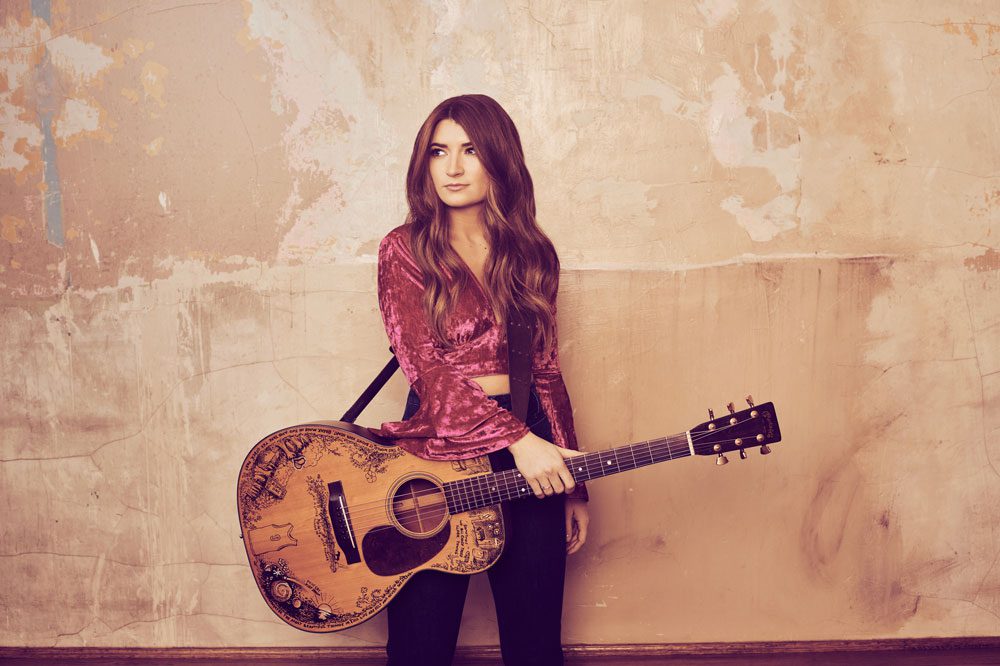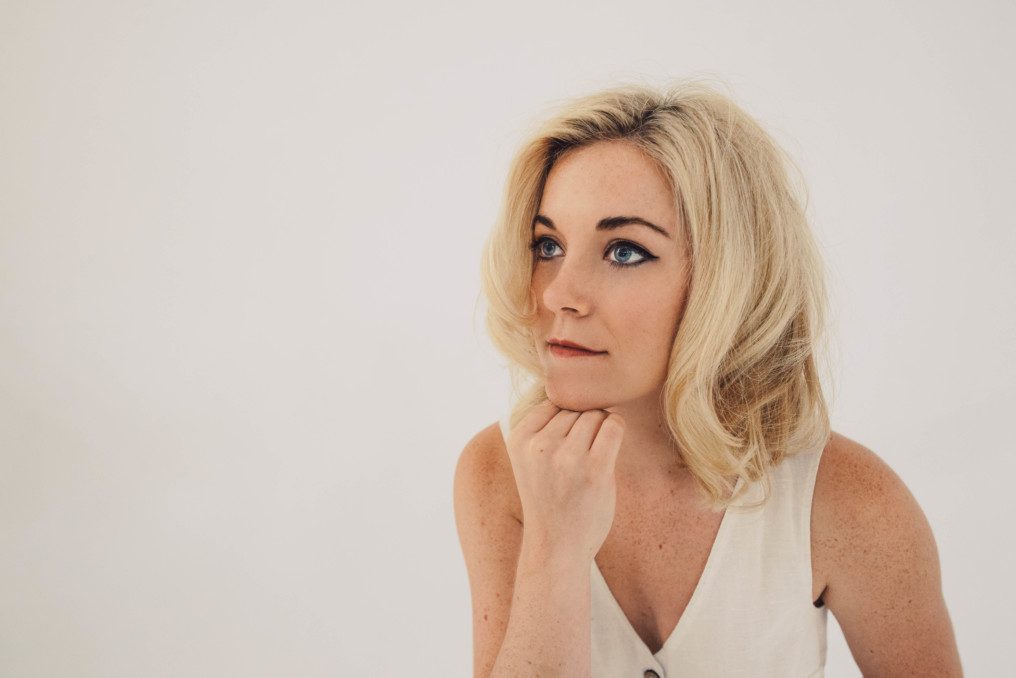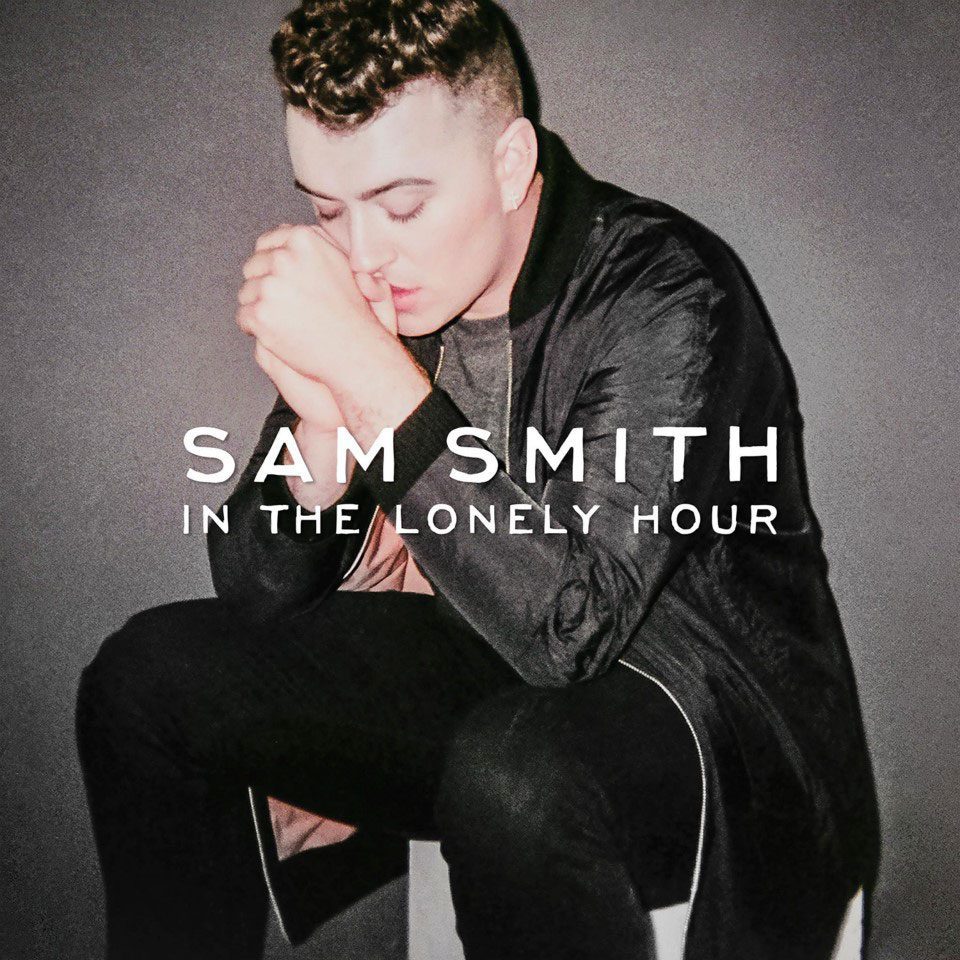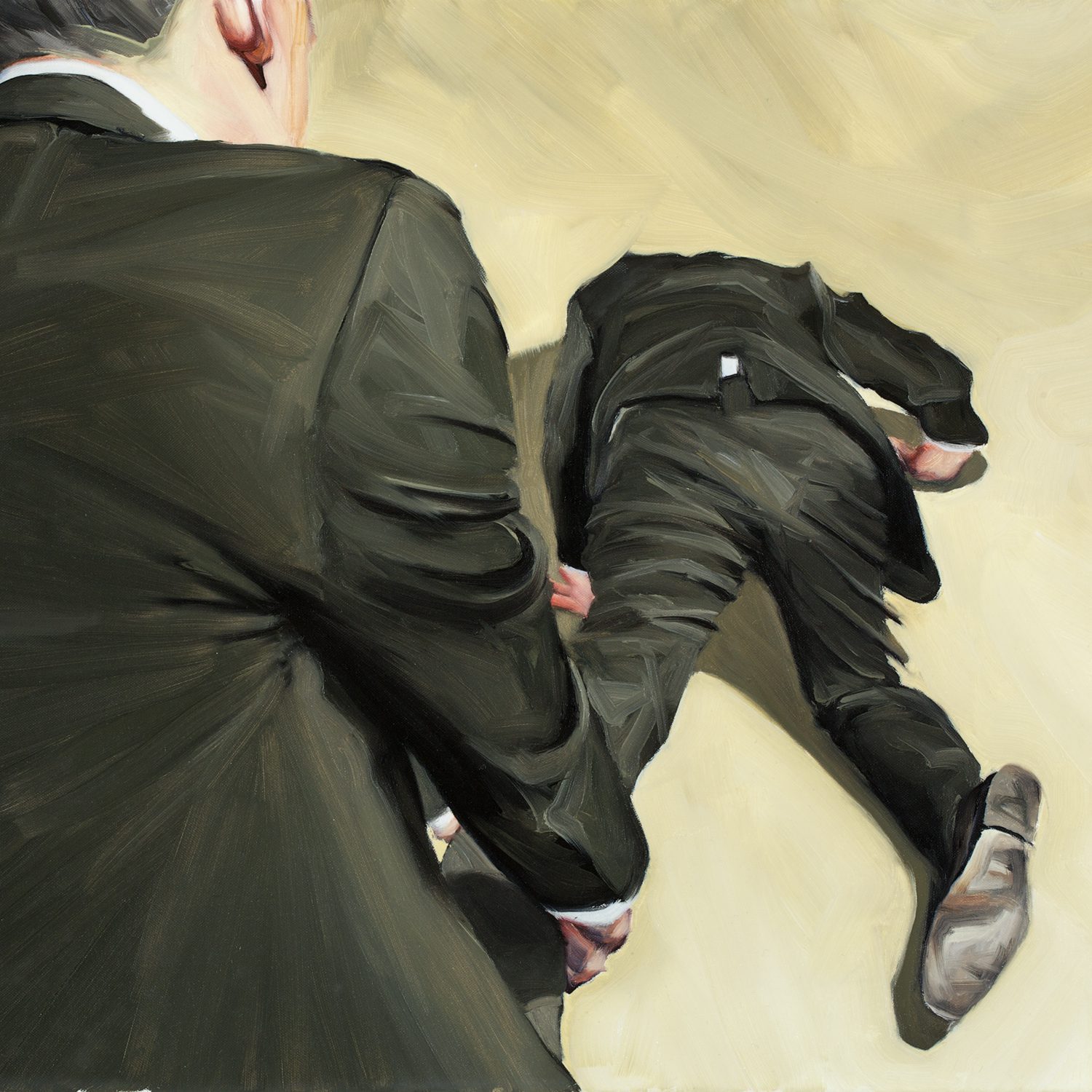
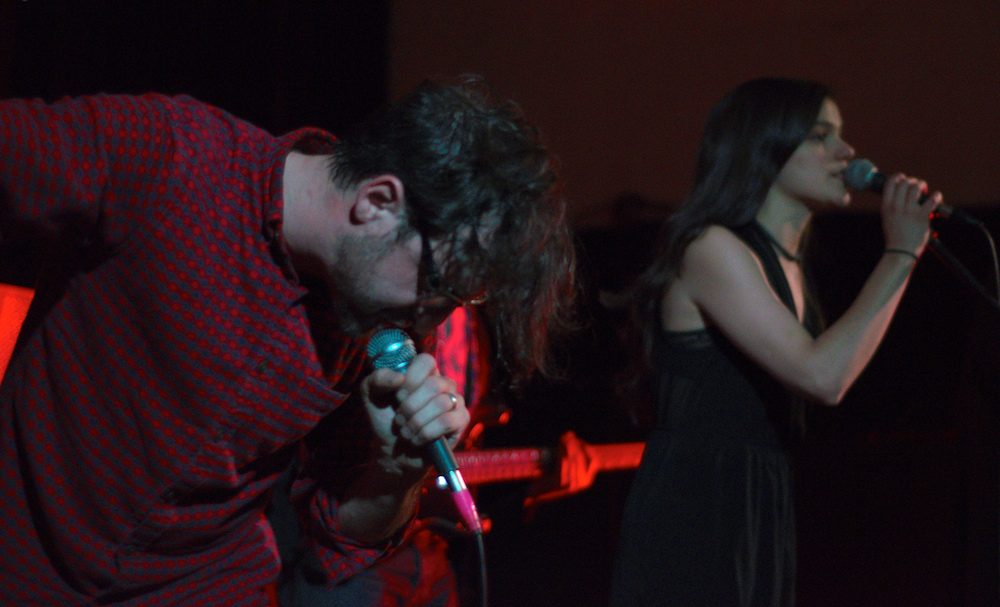
“My only rules were that I would shut my conscious impulses as much as possible (my impulse to interrogate and analyze every gesture, ponder what imaginative impulse every sound was for, worry about what outlet would be used to release the music) and just make,” Shannon Fields has written, regarding his approach to music and his new project–and AudioFemme’s Band Of The Month!–Leverage Models. Fields’ creative impulses and internal landscapes are at the heart of this group. Friends and cohorts appear on Leverage Models’ self-titled debut, too, in such high and ever-evolving numbers that trying to count them would be futile, but Sharon Van Etten, Sinkane and Yeasayer all number among Leverage Models’ contributers. Fields, who dreamt up his first band, Stars Like Fleas, in 1999 and played under that name for nearly a decade, has always been inclined towards collaboration.
Listening to Leverage Models is a fantastically colorful experience, so much so that the first few times through the album feel like being in a brand new, exotic and densely stimulating city–it’s hard to have concrete thoughts on the music when you’re so busy just trying to take it all in. In a wonderfully interior journey, Leverage Models presents a mostly-joyous, always-elaborate layering of futuristic soul music, electronic riffs and repetitive vocal lines that sound more like instrumental licks than voices. It’s hard to see the seams of this album: the music’s many aspects seem like they must have simultaneously sprung, fully formed, into being. Since the album bears so little comparison to anything else in its category, finding the songs’ trajectories requires enough listening to get past just being dazzled by the bright lights and shiny metals, but once you do, the album is actually pretty accessible. Some of the songs, like “Sweet” (with Sharon Van Etten) are surprisingly catchy, with strong R&B influence and an endearing sense of excitement swelling beneath the melodies.
In the fifteen-odd years he’s been recording–first with Stars Like Fleas, and now Leverage Models–Fields has put out only four full-length albums, with a few years’ space between each. It’s easy to see why: each complex, densely compiled release packs a hefty wallop. None more so than Leverage Models, which feels like the summation of the full five years Fields took to create it, with an elegant blend of complexity in its instrumental arrangements and sweet simplicity in its intent.
Listen to the oh-so-stunning, “A Chance To Go”, here via Soundcloud
If you can’t catch Leverage Models at our SXSW showcase this Wednesday, cozy up with Shannon right here instead! Audiofemme got in touch with him and asked him a few questions about music, and the internet, and resurrecting his teenage self who would then listen to the new album. Here’s what went down:
AF: Tell us about the process of beginning your new project, Leverage Models. How did you want it to differ from your work with Stars Like Fleas? What inspires your music writing?
Shannon: Leverage Models didn’t really begin deliberately. Stars Like Fleas was a very large family of musicians that was so emotionally volatile, and so draining to keep afloat that when it finally ripped itself apart I just moved to the country and started spending all day in my home studio with absolutely no agenda except to find something to glue myself back together with. I suddenly had a surplus of time and space to create in. But also this sort of crushing weight of having a part of my identity, something I’d built for almost 10 years (Stars Like Fleas, my life in Brooklyn) vanish overnight. I felt free of the albatross it had become for me, but also a huge wave of “what now?” anxiety. The only way I could handle that was to entirely avoid thinking about the “what now?”, or about who I am or what I had to offer anybody. So that was a pretty radical change to my creative process. With the Fleas, the creative process was analytical to the point of compulsion – it was 2 parts sound creation / performance and 98 parts self-interrogation, willful deconstruction, avoidance of any convention, avoidance of anything that might work in an immediate or superficial way for anybody. And I don’t regret a moment of that. But Leverage Models originated in my just making songs that made me feel better and that I enjoyed living inside, without questioning anything (because at the time I had no intention of doing anything with those songs). Honestly, this was and still is straight up therapy….an approach I hadn’t previously had much respect for. I don’t want to suggest there isn’t still some of that going on with Leverage Models, but I try to keep the higher functioning parts of my brain out of the room until it’s time to take a step back and look at the big picture of an album, or a mix. Until then I let the lizard parts of my brainstem drive the bus. I think I’m more interested these days in the logic of craft and folk art rather than the trappings of modernism, that constant privileging of newness and confrontation of norms, so Leverage Models focuses much more on the shared conventions of pop music and just trying to be disciplined about writing and arranging well. (That said, lyrics are a different conversation entirely….a different ballgame, and equally important to me).
AF: Now that the album has been out for a few months, how do you feel about it? Do you have a favorite song?
S: I spent a year on the record and I’m completely happy with it. It’s not the record I would make today, but it’s a good snapshot where I was at a year ago, and I’m proud of the response I’ve gotten from some of the people whose opinions I care the most about. I don’t actually listen to my own records and can’t say I have a favorite song. Right now my favorite song to play live is The Chance To Go. With most of the songs I wrote and recorded them predominantly at home before bringing in the band to replace demo arrangements. But The Chance To Go came out of a live improvisational session with the band. One morning we woke up, I described a groove to the band, and maybe 15 minutes later we had that song. It feels more spontaneous and live than other things on the record because it is. Also….A Slow Marriage is one that ages well for me….it might be the most open, direct and personal…it feels simultaneously vulnerable and synthetic…which is how I feel most days.
AF: How do you feel about music in the digital age? Would you go to war in order to save the internet from extinction?
S: I’m a little bit confused and alienated by the new relationship to music that the culture has. Music is a little more of a disposable lifestyle accessory and a little less precious then it was when I was a teenager. I don’t know that I have a strong feeling about whether that’s a good or bad thing….I guess it’s a mixed bag, like all change. It’s what culture does. That said, I might not have any kind of social life or a career without the Internet….it’s easier to do everything (except make money), including just talking to people…which has always been difficult for me. It doesn’t carry over into performance, but offstage I have a crippling amount of social anxiety. So email is great. And I think when I moved to the country my music career might have been over in a pre-Internet world. Now it matters much less where I live.
AF: You’ve picked out of the way spots to do a lot of your recording, and Leverage Models was recorded in a farmhouse outside of Cooperstown, NY. Why do you choose such remote locations?
S: Ha!…because I live in that farmhouse in the country outside of Cooperstown! My band lives in Brooklyn but I left before Leverage Models happened. I record mainly in my home studio, in between barn chores (my wife and I are breeding horses) and other work around the property. Splitting my days between physical labor and creative work gives me a rhythm that’s really healthy for me. I feel like a better person for it…even if that’s sentimentalized nonsense, it’s a fiction that helps me get through the day. And I just feel physically and mentally more stable. NYC was breaking me. Also, I should mention that I generally record the full band and mix at The Isokon in Woodstock, NY, — mainly because D. James Goodwin, who runs it, is someone I trust and have a longstanding relationship with. He’s a powerful creative human and he gets me.
AF: What are your strengths as a musician? Would you say you have any weaknesses?
S: I’m not putting my head in either of those nooses. Is this a job interview, Annie?
AF: If one of your songs (while you’re in the process of writing it that is), were a small child (or pet), would you say that it would have a mind of its own or would it generally stay in line and follow the rules?
S: Oh I’m probably training feral animals here, metaphorically speaking. In my writing process I make a conscious effort not to know where I’m going when I begin a song. Sometimes I do try to generate ideas by throwing myself curve balls (horrible cliché’s, instruments and mixing choices that are steeped in cheesy baggage, pastiche, etc.) but mainly I just work really fast and intuitively up front…so fast I don’t have time to question what I’m doing….following my reflexes and my pleasure centers. I write/record in manic highs and edit when I’m miserable. Then if I’ve painted myself into a corner, finding my way out usually leads to something that’s better than it would be if I tried to really over-direct and control the process.
AF: If you could have any person, living or dead, real or fictitious, listen to a song off Leverage Models, who would it be? What do you think they/it would think about that song?
S: Hmmmm….the only thing that comes to mind would be my teenage self. And….I really have no idea what I would think. But I think I’d be pretty down. I would probably question all the slap bass.
AF: If you could experience your own music through one of your other senses, which would it be? What would it taste/smell/feel/look like?
S: Can I experience someone else’s music this way? That seems like a pretty heavy gift to use in such a self-indulgent way. I’m a little food-obsessed. I think Maurice Fulton’s music would make for a pretty satisfying combination of salt, heat and sweetness, without a lot of heavy starchy proteins.
AF: What is one of your favorite cities to perform in? Do you have any weird tour bus necessities?
S: We’re lucky to get a bar towel and some hot water on a hospitality rider and we tour in my 2008 soccer-mom minivan, packed so full of shit none of us can move our legs. I look forward to having weird tour bus necessities though.
As for chosen cities, I just like performing anywhere that people seem hungry for music and aren’t so self-conscious that they’re afraid to move their bodies at a show. But to be honest, I was just as uptight and self-conscious for a long time. It took a long while to get to the point where I really internalized that I am going to die – I think that’s what it pivots on – and was able to full let go of all those kinds of very Midwestern, probably very male inhibitions. So we love playing smaller towns that are usually passed over; where you play to a small crowd but everyone who comes up to you is grateful and excited. It makes me remember being that kid in Kansas City…remembering the feeling you have – living in what you think is the ass-end of the universe — when you see something that changes the game for you, turns a light on, makes the world feel suddenly larger and more nuanced and more capable of possibility and not limited to the values of whatever oppressive cool-crowd you’re stuck under, shows you a way out or inspires you to remake yourself. Anyway, we seem to find a lot of these places in the south. On our current tour, D.C. (a huge house party with a few hundred people, put on by the Lamont Street Collective), Asheville NC, Charlotte NC, and Jacksonville FL were all surprisingly bonkers. I just like to feel like I’m making some kind of real connection with every person there. If I don’t, I feel like a complete failure as a performer and as a person…no matter how much people might have liked it or how ‘on’ the band was. I always take crowd reactions personally, I’m very motivated to feel that connection, even when I know I’m doing things onstage to actively bait or confront them a bit (which happens).
AF: Do you have any words of wisdom for Audiofemme? Any secrets you’d like to divulge?
S:
1. No wisdom, but a thanks to Audiofemme for helping to provide a balance to the music journalists’ boys club. I’m not sure boys clubs are our scene. I’m used to getting threatening looks in boys’ clubs.
2. I’m very good at keeping secrets. You first.
